Tag Archives for " Recording Engineers Handbook "

The drum kit usually gets a lot of attention in most sessions because just about all modern music is rhythm-oriented and highly dependent upon the drums for the song’s pulse. In fact, in most rock, pop, R&B, and country music, a wimpy-sounding drum kit equates to a wimpy track, hence the extreme attention to obtaining […]
Continue reading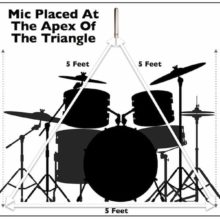
Just because you have a lot of mics and tracks at your disposal, that doesn’t necessarily mean that you’ll get a great drum sound. Sometimes, the simplest methods can provide a realism that you just can’t get from close-miking every drum. Here are 6 techniques culled from my Recording Engineer’s Handbook that show how you […]
Continue reading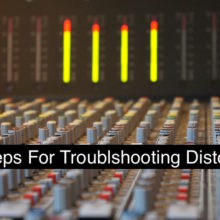
There you are in the middle of a perfect take when you hear the audio cracking up. It’s distorting but you don’t know where. Before you pull your hair out, check out these 6 steps that will help you track it down in a quick and methodical manner. 1. Is the microphone preamp overloading? Is […]
Continue reading
Acoustic guitar by nature varies so much from instrument to instrument that one miking style definitely won’t work on everything. Luckily, there are a lot of different techniques available, and while all the others might let you down, one of the following 3 techniques from my Recording Engineer’s Handbook is sure to work. Considerations • […]
Continue reading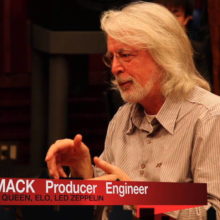
With a who’s who list of credits such as Queen, Led Zeppelin, Deep Purple, The Rolling Stones, Black Sabbath, Electric Light Orchestra, Rory Gallagher, Sparks, Giorgio Moroder, Donna Summer, Billy Squire, and Extreme, the producer/engineer who goes simply by the name Mack has made his living making superstars sound great. Having recorded so many big […]
Continue reading
By my count, there are 8 “constants” that we find in vocal recording. These are items or situations that almost always prove to be true. Just keeping them in mind can save you a lot of trouble in the search for a sound that works for you and your vocalist. Here are a few tips […]
Continue reading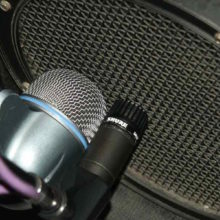
Just like the acoustic bass (and just about all instruments), a great bass sound is dependent upon the instrument itself, the player, the amp, and the room. The player has to be able to achieve the tone you’re trying to record with his fingers first and foremost. This excerpt from the 4th edition of my […]
Continue reading
Phase is important to a great drum sound, but often overlooked. That’s why some drum recordings just don’t sound right, and no amount of processing can make them sound better. Here’s an excerpt for the 4th edition of my Mixing Engineer’s Handbook that outlines 5 easy steps to getting those drum mics in-phase. The chances […]
Continue reading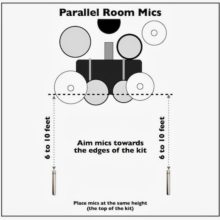
When it comes to a live drum sound during a tracking session, sometimes the smallest details can make a big difference when you consider that there are usually multiple mics involved. Changing one thing can sometimes make a difference, but sometimes it’s the fact that many small adjustments have a cumulative effective on the overall sound. […]
Continue reading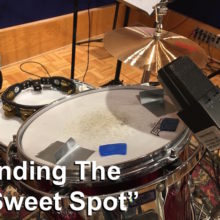
Mic placement may be the most important part of recording since a change of half-an-inch can sometimes make a huge difference in the sound. Finding that correct placement isn’t always easy though, so here’s an excerpt from my Recording Engineer’s Handbook 4th edition to give you some easy tips to find that “sweet spot” quickly. “Quickly finding […]
Continue readingOne of the keys to an initial basic tracking session running smoothly is the information that you receive pre-session. Here’s a recording checklist from my Recording Engineer’s Handbook 4th edition that shows the some of the info that really helps to receive in advance of the session. This will usually be provided by the producer, artist or band […]
Continue reading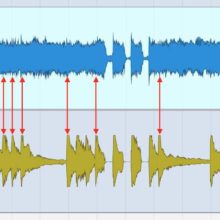
Here’s a great distorted guitar recording tip that I got from Richard Chycki, engineer for Rush, Dream Theater, Aerosmith and many more. I liked it so much I’ve used it on every session since, and included it in the latest version of my Recording Engineer’s Handbook as well. Distorted electric guitar is notoriously difficult to edit, […]
Continue reading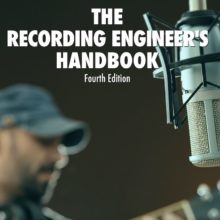
I’m proud to announce the fully updated fourth edition of my Recording Engineer’s Handbook, a complete compilation of the best recording techniques currently used today. Along with the rich treasure trove of information from the previous versions of the book, the latest edition also includes new sections on immersive audio recording, electric guitar recording tricks, and DIY […]
Continue reading
When it comes to your drum sound, sometimes the smallest details can make a big difference when you consider that there are usually multiple mics involved. Changing one thing can sometimes make a difference, but sometimes it’s the fact that many small adjustments have a cumulative effective on the overall sound. Here are 7 tips […]
Continue reading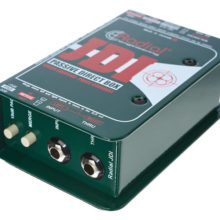
Direct boxes are something that we use every day in recording, yet take for granted because of their simplicity. Here’s an excerpt from my Recording Engineer’s Handbook that looks at the ins and outs of this useful recording tool. “Direct Injection (DI or “going direct”) of a signal means that a microphone is bypassed, and […]
Continue reading